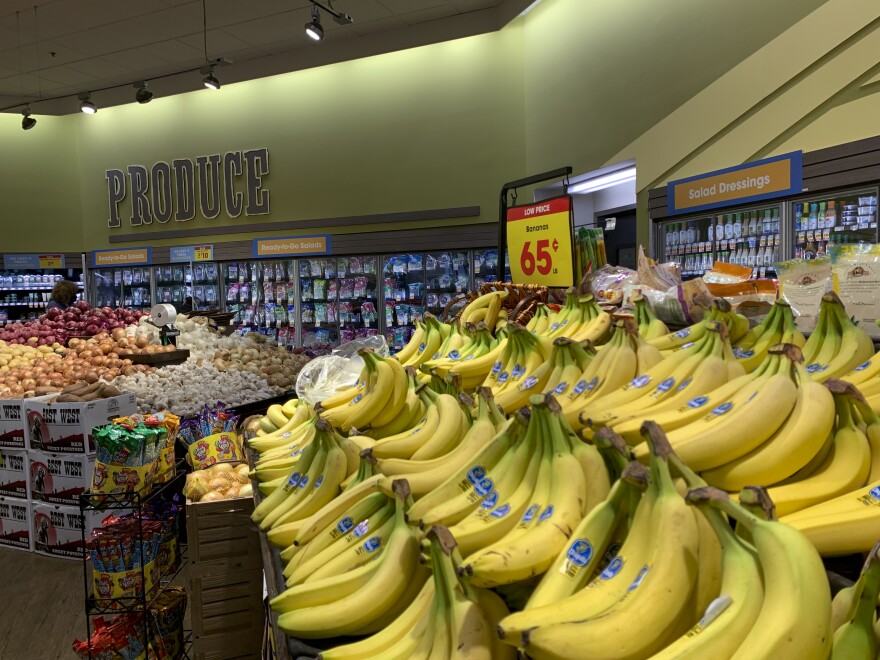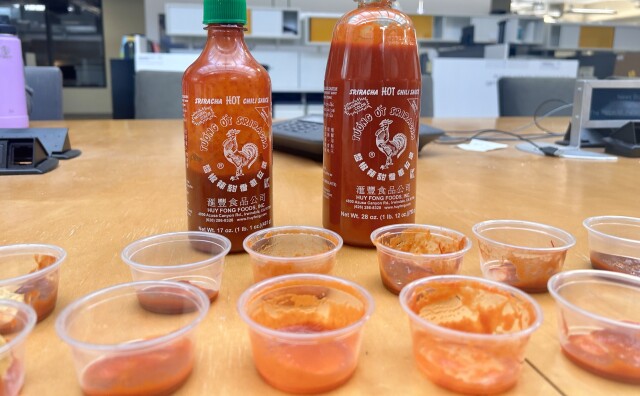Fruit And Veggie Benefit For Low-Income Families Extended Through March

Legislation that President Joe Biden signed last week to keep the government funded through early 2022 also extends a benefit that helps hundreds of thousands of low-income L.A. families buy more fruits and vegetables.
For more than a decade, WIC’s monthly budget for produce has been $9 dollars per child and $11 for moms. During the pandemic Congress more than tripled that amount, but the expansion was set to expire at the end of the year.
“Feeding children healthy food is not a partisan issue,” said Shannon Whaley, who directs research and evaluation at Heluna Health’s PHFE WIC. “I think right now it's important to be reminded, all families, all children, all pregnant women really deserve access to healthy food.”
PHFE WIC is the largest program in the country and serves more than 200,000 families across Los Angeles, Orange and San Bernardino counties.
To qualify, participants must be:
- pregnant
- postpartum
- breastfeeding
- or a child 5 years old or younger
Feeding children healthy food is not a partisan issue. I think right now it's important to be reminded, all families, all children, all pregnant women really deserve access to healthy food.
The income cap for WIC is 185% of the federal poverty level. For a family of three, that’s $40,626 a year. Each month WIC participants get certain foods, including grains, dairy, peanut butter and eggs for free and a set amount to spend on fresh, frozen and produce.
“As an example, if you're a pregnant mom with a 2-year-old, you're now getting $67 a month to buy fruits and vegetables,” Whaley said of the expanded produce benefit. “If we revert to the old way, that's $20 a month for that same household and the discrepancy there is just stark.”
Temporary Extensions
The latest continuing resolution funds the government through February 18, 2022, but per the National WIC Association, a provision extends the higher produce benefit through March 2022.
“We'll be right back there next February, because we're really going to want to extend it and make it permanent,” Whaley said.
Some California lawmakers say they would support changes to the nutrition program.
“While I’m glad Congress was able to agree on a continuing resolution that ensures we can keep our promises to those still getting back on their feet, we must act quickly to achieve a long-term funding agreement so that families aren’t worrying about how they’re going to keep healthy food on the table,” said Rep. Adam Schiff, a Democrat who represents parts of Los Angeles, Glendale and Burbank in an emailed statement.
San Gabriel Valley Democratic Rep. Judy Chu called for an update to WIC in an emailed statement to LAist.
“We know this funding works and, especially as need has risen over the past two years of pandemic and recession, it must be made available to all families who need it, not just temporarily but until they have their needs met,” Chu’s statement read.
-
After people began complaining online that Sriracha they'd bought recently didn't taste like the old stuff, we set out to find the answer. It didn't go well.
-
From tortas to tuna melts, all sandwiches tell a unique story as they celebrate Los Angeles' diverse tapestry of flavors with each bite.
-
The company behind Sriracha told us production has resumed.
-
Dustin Bartz has figured out a way to sell a $6 smashburger — and still make a tidy profit. He enjoys trolling competitors who charge more.
-
Two amateur bakers take on a beloved, almost sacrosanct school treasure.
-
For Jeff Alulis, the Burger Quest became “something bigger” than him.









